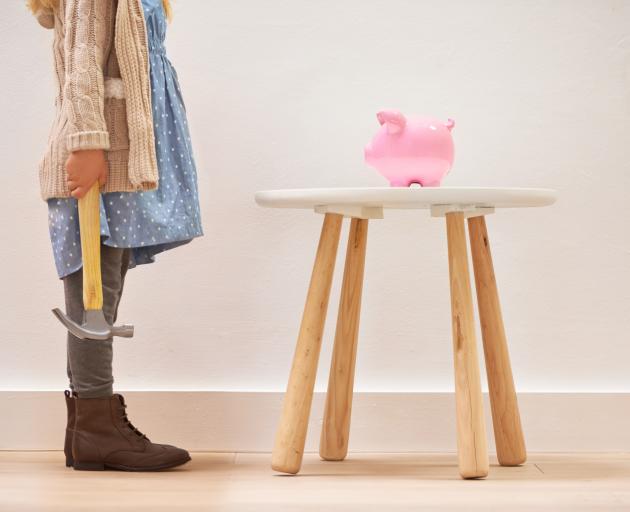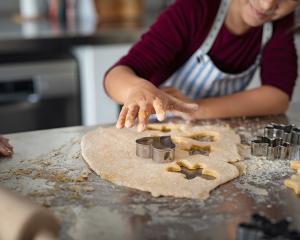
Teaching children the value of money should start at an early age, writes parenting columnist Ian Munro.

We’ve recently had a national focus on financial literacy for youngsters. It’s something I wrote about some years ago and it’s perhaps timely to look at the subject again.
I’m a firm believer that, in order to instil in youngsters’ heads what money is all about, parents need to start early in their children’s lives. What’s more, alongside learning an appreciation of the value of money and the relationship between earning, spending and saving, they should also be gaining some sense of community, an understanding about the family’s values and learning a little altruism as well.
Many parents avoid talking to kids about money, because they lack confidence in how they’ve handled their own finances. So, let’s start with the basics of pocket money and allowances and the question: Did you get paid specifically for cooking the meal or washing the dishes last night? I think I’d be safe in saying your answer would be, "No".
And the extension of that is: and nor should the kids. They should be doing basic household chores because "we’re all in this mess together, we made it together and we’ll clean it up together". Each member of the team has their own valued contribution to make in doing this and there are other ways of acknowledging the contribution of each by thanking or praising a job well done.
Paying for individual chores can lead to an expectation that no chore, whether it’s making the bed, picking up clothing or getting in the wood, should be done without a material reward. Paying can quickly backfire when the child decides he doesn’t need the dollar for doing tonight’s dishes so doesn’t do them.
An easy answer to a request for money for household chores is, "OK, I’ll pay you a dollar for doing the dishes but tonight’s tea will cost you four dollars".
So where does that leave us with pocket money? Before going any further it’s important to be clear in your own mind what purpose it serves. I’d like to suggest that pocket money or an allowance does the following four things.
• It rewards teamwork and overall contribution to the family, much as a weekly wage does.
• It teaches the value of money and learning the cost of items relative to money earned.
• Children learn how to handle money wisely and learn the consequences of unwise decisions.
• It develops other skills such as self-discipline and good judgement.
An allowance could start as soon as you feel your child can understand the concept of money. A 4-year-old should certainly be able to appreciate that.
Next time I’ll talk about dollar amounts and look at some guidelines for teaching children how to manage their money.












